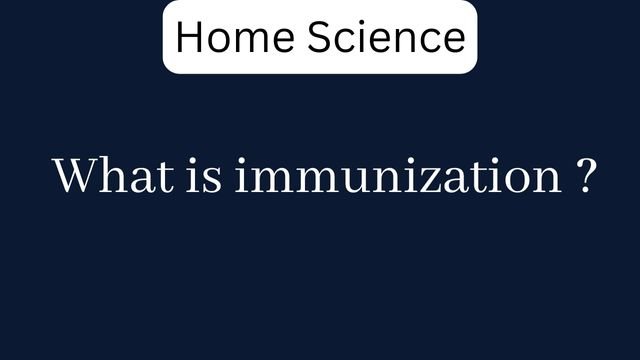What is immunization ?
- Before birth, a child lives in a definite environment in mother’s womb. Therefore, during the gestational development only the internal environment affects the baby’s health. But, after birth, he gets a new environment every moment of which affects his health continuously. Harmful elements present in the environment adversely affect the baby’s health and as a result he suffers from different types of diseases. A survey shows that in India, 2/3rd of children lose their lives to Tetanus in the first month of their lives. Approximately 25% babies die because of Diarrhoea. Not only in India, but also in other developing countries 50-52 lakh children die due to Diarrhoea, Measles, Dehydration, Diphtheria, Polio and Tuberculosis.
- Keeping in mind the mortality rate, it is important to pay attention to child health care. The foundation of a good health of a child is laid at the time of his birth. It is our responsibility to develop each child into a healthy and competent member of the family and society and a citizen of the country. Parents as well as guardians too should pay attention towards child health care. For this, after the baby’s birth he should be vaccinated on time so that his body develops resistance capacity for different diseases.
Immunization :-
- The best way to prevent a disease is immunization. Immunization is the process whereby a person is made immune or resistant to an infectious disease, typically by the administration of a vaccine. Vaccines stimulate the body’s own immune system to protect the person against subsequent infection or disease.
- A vaccine typically contains an agent that resembles a disease-causing micro organism and is often made from weakened or killed forms of the microbe, its toxins or one of its surface proteins. Vaccine provides active acquired immunity to a particular disease. Some vaccines are orally administered while others are injected in the body.
Mainly immunization is done in two steps-
- Primary immunization
- Secondary immunization
- In primary immunization for developing disease resistance, one or more injections are administered. These primary injections are for a definite time period. And so, as the time passes the disease resistance capacity reduces.
- After the duration of primary immunization, secondary immunization starts. These are also called as ‘boosters’ . If the secondary immunization is not given then the disease is likely to appear.
Home Science Latest Post :- Click Here
Important Points of Development in Infancy and Childhood :-
- After the baby’s birth he should be vaccinated on time so that his body develops resistance capacity for different diseases.
- A person is made immune or resistant to an infectious disease, typically by the administration of a vaccine.
- A baby should be vaccinated for chickenpox in the first week after birth.
- BCG vaccine is given for protection against tuberculosis.
- Triple antigen vaccine is given for diphtheria, whooping cough and tetanus.
- Polio vaccine is orally administered.
- Typhoid, Para-typhoid and cholera vaccine is given in combination.
1. Chickenpox Vaccine is administered in
(a) First week after birth
(b) First month after birth
(c) First year after birth
(d) Five years after birth
Click to show/hide
Answer :- ( A )
2. BCG Vaccine is given for
(a) Tuberculosis
(b) Measles
(c) Jaundice
(d) Polio
Click to show/hide
Answer :- ( A )
3. Lump is formed after which vaccination
(a) Chickenpox
(b) BCG
(c) Whooping Cough
(d) Typhoid
Click to show/hide
Answer :- ( B )
4. Which of the following vaccine is given orally ?
(a) Jaundice
(b) Cholera
(c) Measles
(d) Polio
Click to show/hide
Answer :- ( D )
5. Which of the following vaccines can be given in combination?
(a) Chickenpox and Measles
(b) Polio and Typhoid
(c) Cholera and Typhoid
(d) Tuberculosis and Whooping cough
Answer :- ?????
